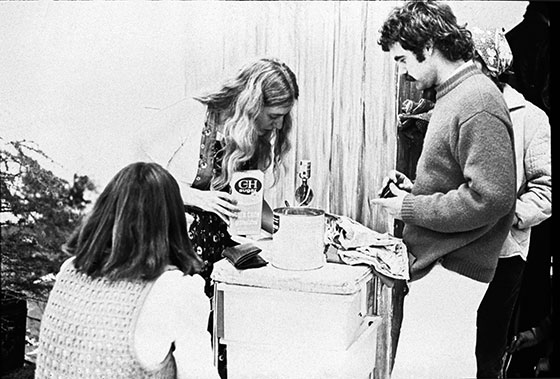
Martha Rosler, the Brooklyn artist best known for feminist photomontages and videos, is a champion garage-sale hound. She staged her first in 1973 at the University of California, San Diego, not as a way of cleaning out the house but to explore the mechanisms of that strange little DIY marketplace. Rosler has since mounted similar iterations in Europe and the United States, and the ambitious Meta-Monumental Garage Sale—for which she’s been collecting donations all summer, and at which you’ll be able to buy everything from the artist herself—will sprawl through the Museum of Modern Art’s second-floor atrium from November 17 through 30. Rachel Wolff asked Rosler what we might expect.
What first attracted you to the format?
It’s a form of community ritual behavior, but it’s also an unwitting portrait of yourself—and an effort to make money so that you can continue to consume. I was really interested in how people were trying to profit off things they didn’t want anymore.
And have you sold anything really personal or strange?
At first, a lot of it was private material of my own—the portrait element was much more present. I remember someone being shocked that I was selling my son’s baby shoes, which didn’t strike me as more odd than the outdated pornography I was selling. I had private letters there, too, and nobody tried to buy any. [This time], most of the stuff has been really unexpected—from this beautifully detailed stuffed-Schnauzer toy to designer dresses, which really surprised me.
Anything that made you squeamish?
I sold used diaphragms at the one in 1977. I have a picture of a woman holding them up. I think she was an artist, but I’m not sure. I’m sure you’ve been to garage sales and I’m sure you have said to yourself, They are trying to sell that? My motto is “Everything clean, nothing guaranteed.”
How do you go about pricing everything?
Capriciously. I really mean that. Most things are going to be priced reasonably, but some things are not. And everything is an opportunity for haggling.
I saw that there’ll be some audiovisual stuff going on as well, including a slideshow projected on the wall. How does that relate?
At a sale [I went to] in 1973, I was sad to see that people were selling their dead father’s slide collection—images of trips to foreign lands, monuments, flowers, family celebrations. So I bought it. I’ve shown them in every garage sale since. I just thought, Wow, you spend your life accumulating these images and your kids chuck them out.
For a few bucks. By the way, where will the money go?
Well, I never say, but I don’t ever keep it. And the museum never keeps it.